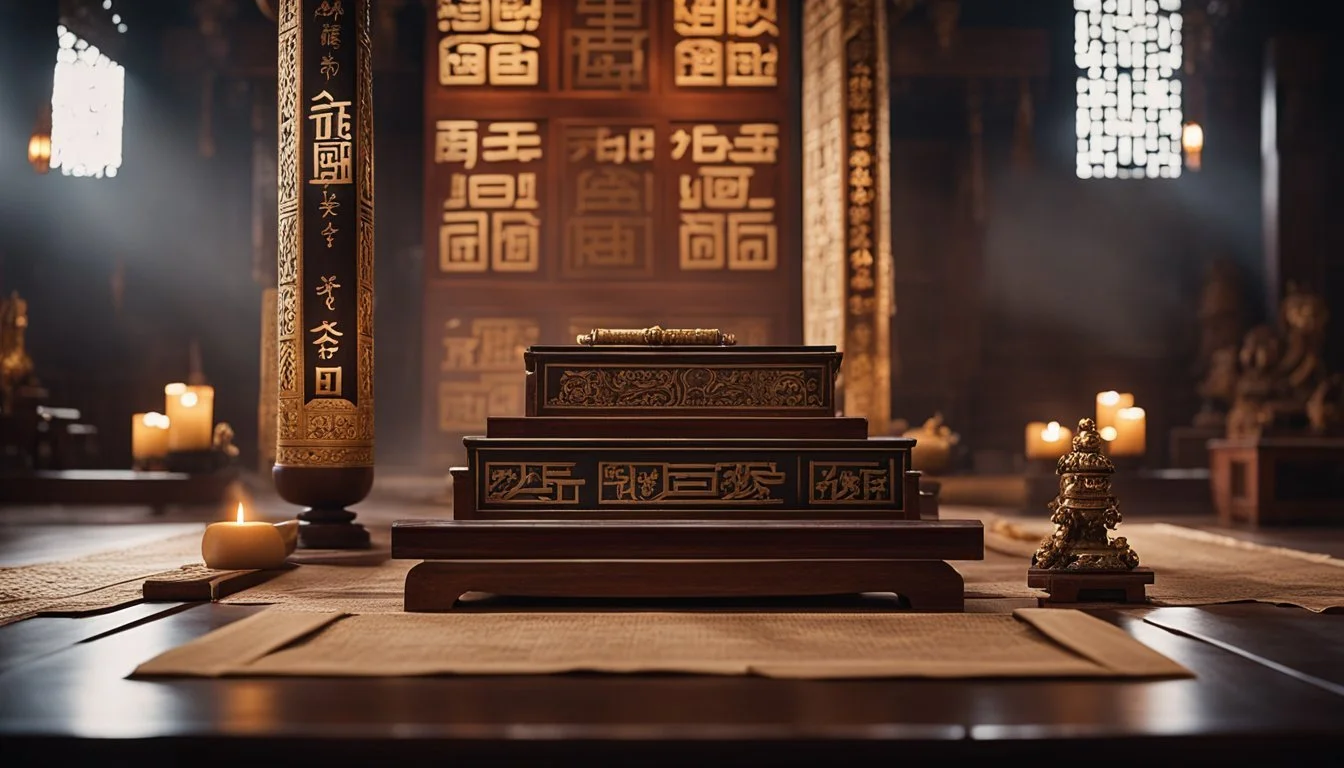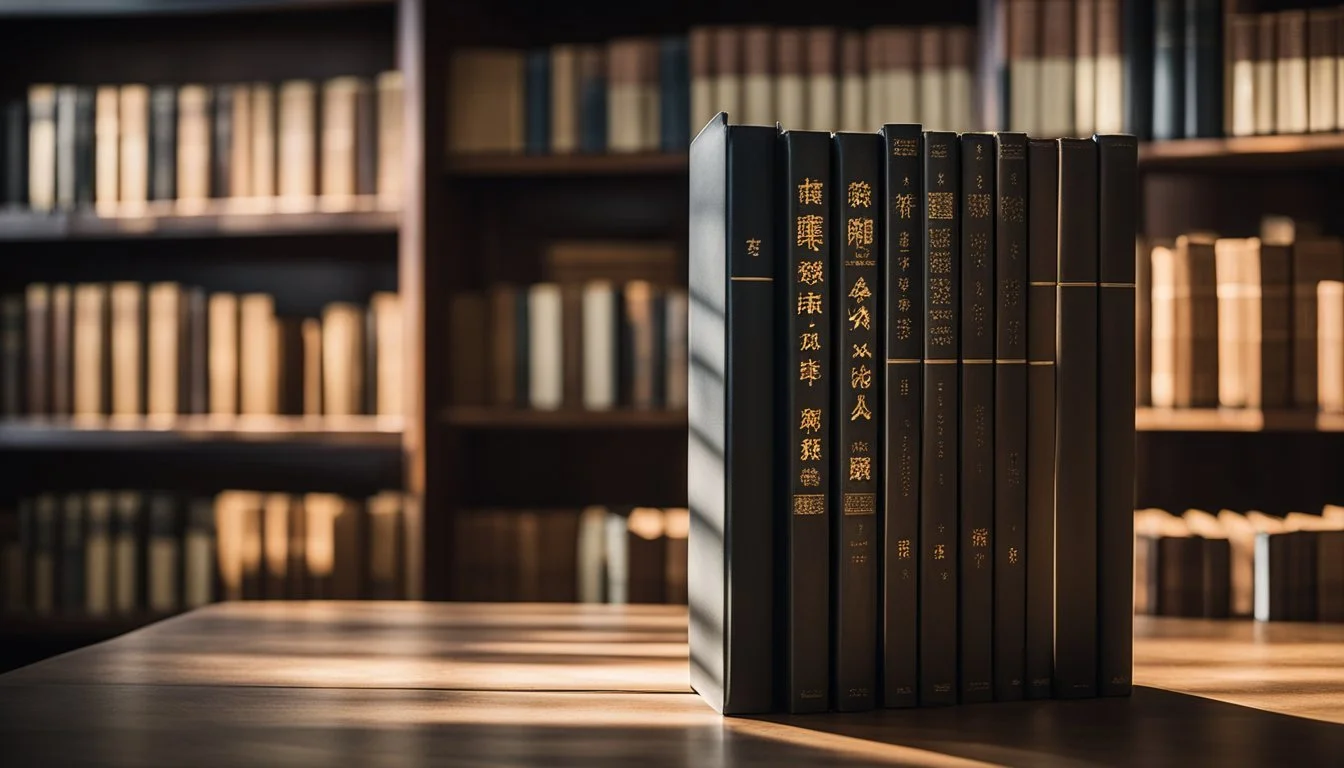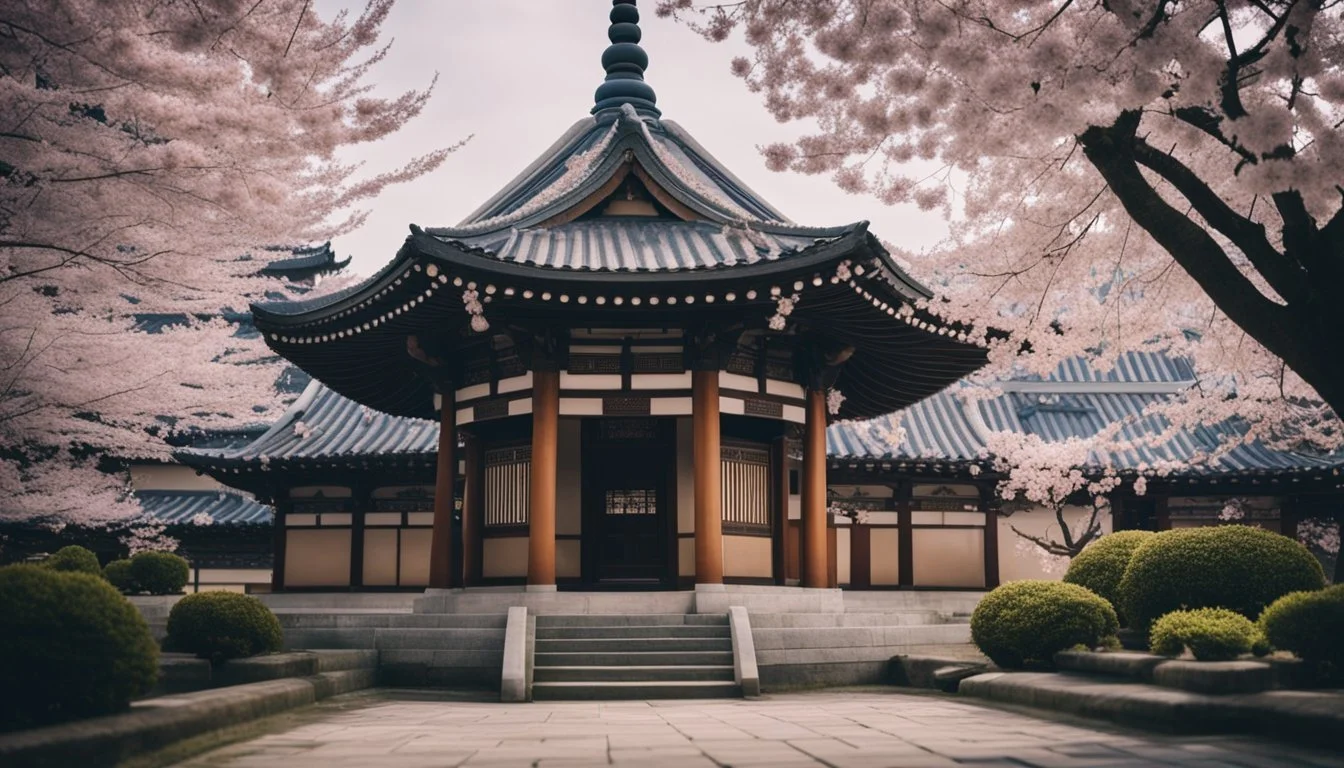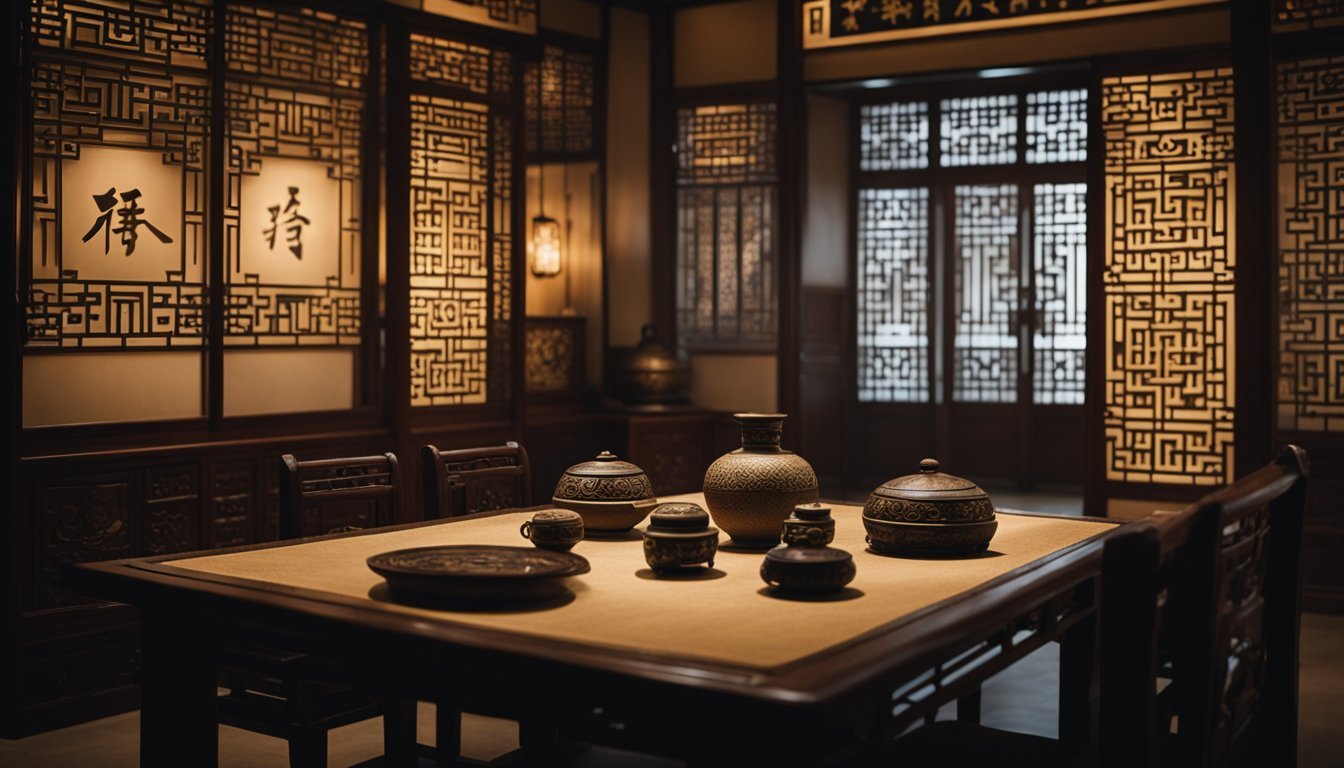10 True Crime Documentaries About Confucian Communities
Unveiling Dark Secrets
True crime documentaries shed light on the often unseen aspects of communities, exploring crime through a cultural lens. In the context of Confucian communities, these documentaries not only reveal the complexities of criminal acts but also how traditional values of respect, duty, and family influence individuals and society at large.
What makes these documentaries particularly compelling is their ability to contrast deeply-rooted Confucian principles with the stark reality of crime. By examining a variety of cases, they provide a nuanced perspective on how cultural norms and ethics interact with unlawful behavior, offering viewers a unique and informative glimpse into these communities. These films invite reflection on the tension between age-old traditions and the pressures of modern life.
1) Blood and Tradition: The Confucian Crimes
"Blood and Tradition: The Confucian Crimes" (2021) explores a series of criminal cases deeply rooted in the values and norms of Confucian societies. The documentary sheds light on how cultural traditions can sometimes intersect with acts of crime, revealing a darker side of adherence to customs.
One of the cases involves familial obligations gone awry, where expectations and honor play a central role in the motivations behind the crimes. The film delves into the pressures faced by individuals to maintain family honor, sometimes at the cost of committing crimes.
Experts in Confucian philosophy provide insights into how these ancient teachings influence modern-day behavior, particularly in East Asian communities. This documentary also examines how legal systems in these regions respond to crimes influenced by cultural practices.
With meticulous research and eye-opening interviews, the filmmakers manage to bring an understanding of the complex relationship between crime and Confucian values. The film raises questions about justice, morality, and the impact of ancient philosophies on contemporary societal issues.
For more information, visit IMDb.
2) Shadows in the Library
"Shadows in the Library" (2022) explores a mysterious case within a Confucian community in a small village. The documentary delves into the sudden disappearance of rare ancient manuscripts from a revered local library.
The filmmaker weaves together testimonies from the elders, scholars, and community members. They delve into the rigid societal norms and pressures within the village. These intricacies provide a backdrop to the theft and add depth to the narrative.
The documentary captures the villagers' dedication to recovering their cultural heritage. It highlights the collaborative efforts between the local authorities and members of the community. The film's cinematography accentuates the serene yet tense atmosphere of the village library.
"Shadows in the Library" is lauded for its insightful portrayal of Confucian values. It offers viewers a rare glimpse into the cultural significance of ancient manuscripts in preserving history and identity. This film not only solves a mystery but also educates viewers on the importance of cultural preservation.
For more details, visit IMDB.
3) Confucian Shadows and Bloodlines
This documentary explores the impact of Confucianism on family lineage and social structures. It delves into how Confucian principles shaped societal norms and expectations across generations.
The film examines historical contexts and modern-day implications, providing a rich tapestry of both past and present influences.
By focusing on personal stories and broader societal trends, the documentary offers a deep insight into the lives touched by Confucian philosophy.
To learn more about this documentary, visit the Wikipedia page.
4) Ancestral Vows and Crimes
True crime documentaries focusing on ancestral vows and crimes delve into the complex relationships within Confucian communities. These films explore moral obligations, family ties, and the ways in which crime can disrupt these traditional values.
1. The Confucian Code: Betrayal Within (2020) - This documentary examines a case where a family's ancestral vows were put to the test by betrayal. It sheds light on how familial expectations can lead to criminal actions. IMDB
2. Bloodlines of Honor (2018) - This film portrays a community where a murder shakes the very foundation of their strict adherence to Confucian principles. The investigation uncovers deep-seated family secrets. Wikipedia
3. The Ancestral Curse (2019) - Follows the story of a family haunted by a vow made generations ago. As crimes related to the vow come to light, the documentary explores the intersection of tradition and legality. IMDB
4. Honor and Homicide (2021) - A gripping tale of a family's struggle to maintain their honor after a heinous crime disrupts their lives. The story reveals the pressure of maintaining ancestral vows amidst modern societal challenges. Wikipedia
These documentaries highlight the tension between upholding ancient traditions and the harsh realities of contemporary criminal behavior. Through real-life cases, viewers gain insight into the powerful influence of Confucian values on individual actions and familial duty.
5) Beneath the Temple Veil
Beneath the Temple Veil (2023) transports viewers to a secluded Confucian community in rural China. The documentary explores the intricate relationships and secrets concealed within the temple walls.
The film unveils the community's attachment to tradition and the covert practices performed to maintain societal order. Through interviews and hidden camera footage, it reveals a hidden network of rituals.
A central figure is the temple elder, who guides viewers through the community's clandestine world. His revelations about the confessions and internal conflicts provide a unique insight into the preservation of ancient beliefs.
Cinematic storytelling and thoughtful narration add depth to the experiences depicted. This documentary invites the audience to grasp the interplay between spiritual devotion and clandestine behavior.
For more information, visit IMDB.
6) Bloodline Betrayal: Confucian Crimes
Bloodline Betrayal: Confucian Crimes (2022) delves into the complexities of familial relationships within Confucian communities. The documentary explores cases where the rigid structures of respect and duty led to familial conflicts and crimes. This compelling narrative examines how traditional values intersect with modern legal systems, resulting in unexpected and often tragic outcomes.
The film highlights various instances where deep-rooted beliefs played a critical role in the escalation of family disputes into criminal activity. Through interviews and archival footage, it provides a thorough analysis of the impact of Confucian expectations on family members.
One notable case examined is the Wang family saga, where a dispute over inheritance rights spiraled into violence. The documentary provides insights into how Confucian principles of filial piety and loyalty can sometimes clash with individual desires and societal laws.
The documentary also covers the role of community elders in mediating conflicts and the pressures on young family members to conform to traditional expectations. It poses critical questions about the sustainability of such values in contemporary society, especially when they lead to criminal behavior.
For more information about the documentary "Bloodline Betrayal: Confucian Crimes," visit IMDB.
7) The Silent Confucian Murders
The Silent Confucian Murders (2021) delves into a series of unsolved crimes within a tightly-knit Confucian community. Featuring interviews with law enforcement, local historians, and community members, this documentary uncovers the complexities of tradition and secrecy that hindered the investigation.
In this film, the mysterious deaths of several prominent figures in the community are explored. Each victim, deeply rooted in Confucian values, leaves behind a trail of unanswered questions.
The documentary also addresses the challenges faced by the investigators. Cultural barriers and the community's reluctance to speak out create significant hurdles, adding layers of intrigue to the case.
Archival footage and reenactments provide a vivid portrayal of the events. The detailed exploration of the suspects and their possible motives keeps the viewers engaged.
For more information, visit IMDb
8) Whispering Ancestors: A True Crime Tale (2019)
"Whispering Ancestors: A True Crime Tale" (2019) explores the intersection of crime and Confucian values in a small village in East Asia. The documentary delves into the mystery surrounding the death of an elderly village patriarch, revealing deeply rooted family secrets and power struggles influenced by traditional Confucian beliefs.
The story begins with the sudden and suspicious demise of the community leader. The investigation unveils long-standing grudges, financial conflicts, and hidden affairs among the villagers. The film meticulously portrays how Confucian principles like filial piety, respect for elders, and the emphasis on family honor play a crucial role in the unfolding drama.
Interviews with family members, villagers, and local authorities provide a comprehensive view of the intricate dynamics at play. Archival footage and reenactments help to bring the story to life, making it a gripping watch. The filmmakers succeeded in creating a narrative that highlights both the cultural context and the human emotions involved.
For more information on "Whispering Ancestors: A True Crime Tale," visit the IMDb page here.
9) Faith and Felony: Confucian Mysteries
Examining crime within Confucian communities offers unique insights into how faith and morality interplay with law and justice.
Confucianism, with its heavy emphasis on moral integrity, respect, and familial hierarchy, provides a compelling backdrop for true crime narratives. These documentaries explore how these traditional values influence criminal behavior and the judicial process within these communities.
Understanding the role of Confucian principles in these cases reveals the complexities and often the contradictions inherent in balancing moral conduct with human fallibility.
The documentaries delve into both historic and contemporary cases, underscoring the timeless nature of these moral dilemmas.
By showcasing crimes that disrupt the Confucian order, these films provide a unique lens to view not just the acts themselves, but the cultural context that frames them.
Crimes of Filial Piety
In Confucian societies, filial piety plays a significant role in shaping cultural and familial dynamics. This often results in deep moral conflicts, leading to crimes rooted in the desire to honor one's parents or ancestors.
One documentary that explores this is Between Morality and Crime: Filial Daughters and (2024). It examines an 18th-century crime in which a married woman committed an offense to avenge her father's death. This case highlights the complexities of filial loyalty in Confucian ethics. More info.
True Stories of Filial Piety (2022) delves into how filial piety is used to reinforce Confucian moral values. This documentary analyzes historical cases and stories that demonstrate how filial devotion was manipulated to maintain social and political order. More info.
Confucianism and Filial Piety (2021) addresses the darker aspects of filial piety in modern times. It highlights cases of abuse and extreme obedience to parents, leading to criminal behavior justified under the guise of filial duty. More info.
These documentaries provide valuable insights into how filial piety can lead to both moral righteousness and moral dilemmas within Confucian communities. They reveal the intricate balance between upholding familial honor and the potential for ethical conflicts resulting in crime.
Historical Background
To understand true crime documentaries about Confucian communities, it's essential to first grasp the historical context of Confucianism and its impact on society. Exploring the rise and evolution of these communities reveals how Confucianism shaped their values, rituals, and social structures.
Confucianism and Society
Confucianism, originating from the teachings of Confucius in the 5th century BCE, profoundly influenced East Asian societies. Confucius emphasized filial piety, social harmony, and respect for elders, which became the cornerstones of societal interactions. These principles were not merely moral guidelines but extended to governance and educational systems, ensuring a hierarchical but harmonious social fabric.
This philosophy also reinforced the importance of family and community, embedding these values in varied aspects of daily life. Educational systems and state policies often revolved around Confucian doctrines, creating a bedrock for stability and continuity in these communities.
Evolution of Confucian Communities
Over centuries, Confucian communities adapted and evolved, responding to political, social, and economic changes while maintaining core principles. Initially, these communities were centered in China, but Confucian values spread to Korea, Japan, and Vietnam, influencing local cultures and traditions.
During the Han Dynasty, Confucianism became the state ideology, integrating deeply with the state's bureaucratic machinery. Though later challenged by other philosophies like Buddhism and Daoism, Confucianism resurged through movements like Neo-Confucianism during the Song Dynasty, ensuring its relevance.
In modern times, Confucian values continue to influence corporate ethics, education, and government policies in East Asia, proof of the enduring legacy of Confucian communities.
Cultural Insights
Confucian communities place a high emphasis on specific values and social hierarchies that shape their way of life. These core values and structures are essential to understanding the cultural context within these true crime documentaries.
Core Confucian Values
Confucian values such as filial piety, ritual propriety, and humaneness are pivotal in communities influenced by Confucianism. Filial piety emphasizes respect and care for one's parents and ancestors, establishing a family-centered ethic.
Ritual propriety involves adherence to traditional rituals and social etiquette, fostering a sense of order and respect within society. Humaneness represents a universal kindness and benevolence toward others, reinforcing ethical behavior. These values govern daily interactions and decision-making processes, impacting community responses to crime and justice.
Social Structure and Hierarchies
The social structure within Confucian communities is stratified and well-defined. Hierarchies are respected and maintained, starting from the family unit to broader societal roles.
Patriarchal leadership is common, with elders and males typically holding positions of authority. This framework influences legal and social proceedings, as respect for rank and age can impact judgments and conflict resolutions.
Additionally, social relationships are guided by the "Five Relationships" of ruler-subject, father-son, husband-wife, elder-younger, and friend-friend, each underscoring reciprocal duties and responsibilities. Understanding these hierarchies is crucial for comprehending the societal reactions and the prevailing justice systems shown in true crime stories.













